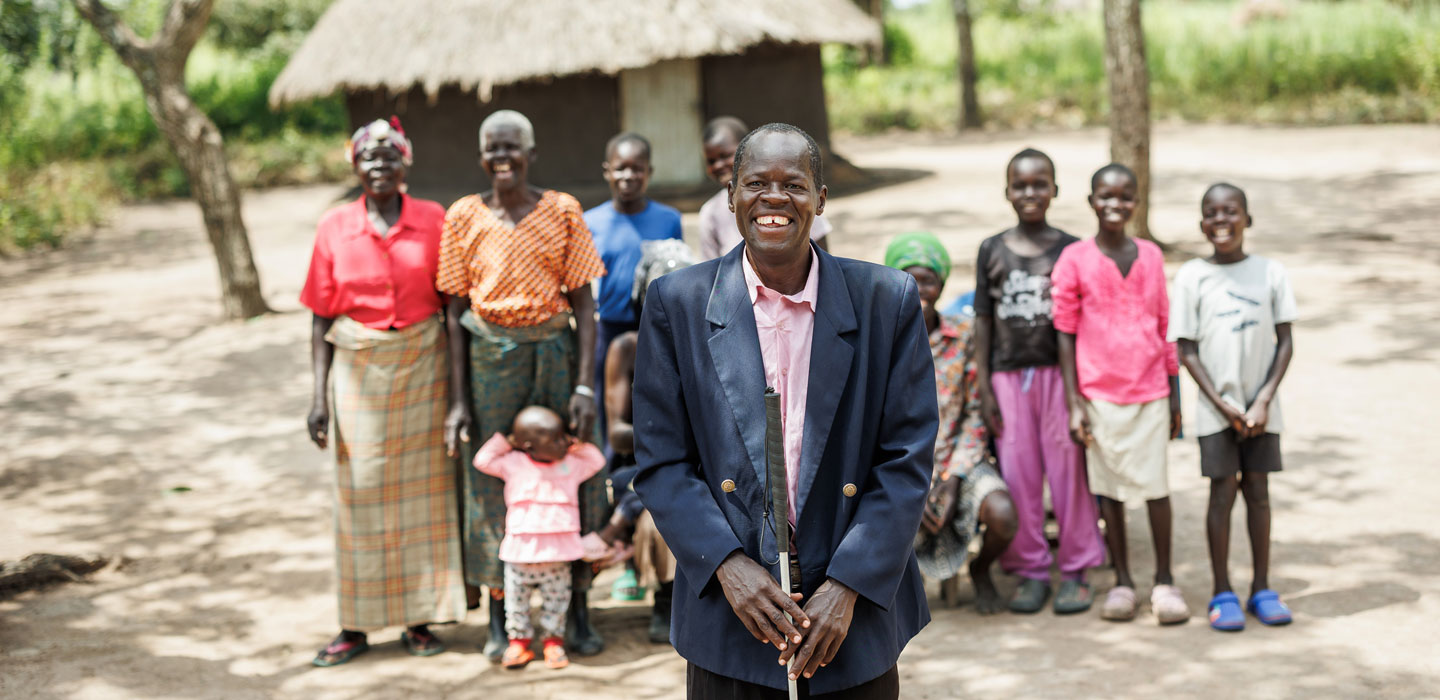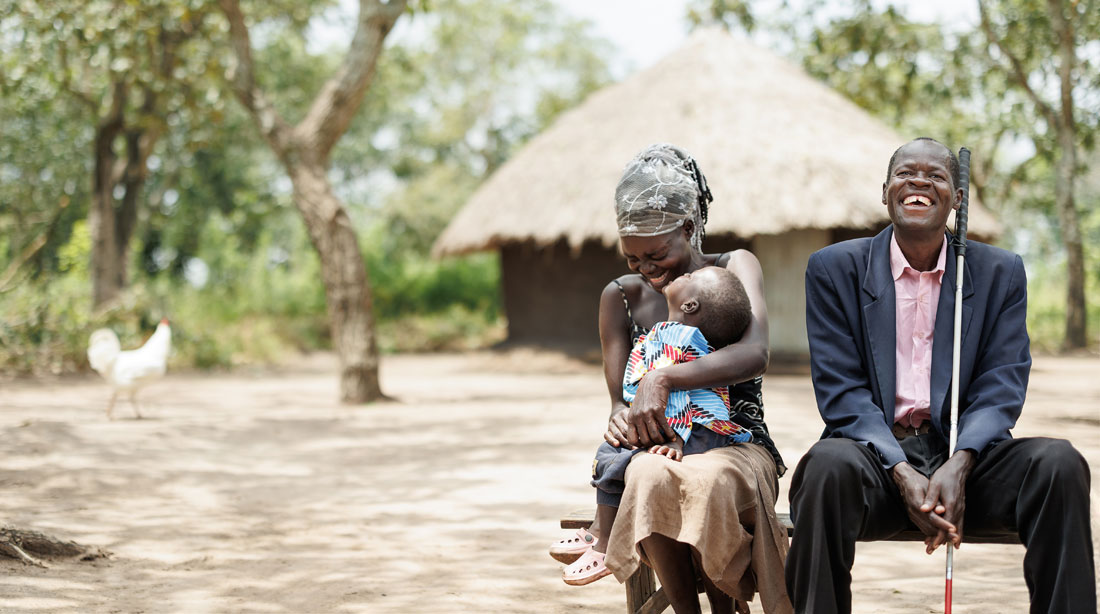Persons with disabilities and IFAD join forces to achieve the Sustainable Development Goals
IFAD Asset Request Portlet
Asset Publisher
Persons with disabilities and IFAD join forces to achieve the Sustainable Development Goals
Estimated reading time: 4 minutes
Around the world, IFAD is working with persons with disabilities, supporting them to build livelihoods and food security and take their rightful place in the global effort to achieve the Sustainable Development Goals.
We aim to ensure that the programmes we fund are equitable, sensitive to the needs of persons with disabilities and include them as shapers of their own development.
Building better businesses, from Uganda to Nigeria
 |
| After having a partial stroke, Cyril regained momentum through LIFE-ND. © IFAD/Tony Nnamdi |
In Nigeria, Cyril Edafiadhe was doing the dishes when he suddenly found himself unable to move. “It felt like those American movies I used to watch, but this time it was real, this time it was me,” he says.
Cyril had experienced a partial stroke. A once-promising student, he was forced to abandon his education, even after lengthy rehabilitation.
But, through the IFAD-supported LIFE-ND project, Cyril regained the momentum to succeed. He joined an incubator established by the project and learned how to farm catfish.
With a loan from LIFE-ND, Cyril stocked a pond with 1,500 young fish. Within months he had nearly a tonne to sell. He made 172,200 naira (US$ 217) in profit and promptly re-invested it.
“With the guidance from the incubator and LIFE-ND, I believe I will succeed,” says Cyril. “I would like my story to be shared with others like me. There is always hope at the end of the tunnel. If I can do it, you can too.”
 |
| Through PRELNOR, Fred received mentorship and training. © IFAD/Jjumba Martin |
When Fred Ouma lost his sight after an unsuccessful operation, he was left frustrated and hopeless. An experienced beekeeper in northern Uganda, he became dependent on his wife Concy and unable to earn enough to feed his family.
With quality seeds and advice from a mentor from the PRELNOR project, Fred and Concy began growing beans on a small plot of land. A neighbour who owned an ox agreed to plough their land using a plough Fred bought with a PRELNOR grant. With the first harvest, the couple fed their children and sold the remainder. Since then, they’ve earned enough to buy livestock and renovate their home.
His confidence renewed, Fred is ensuring that his own expertise as a beekeeper doesn’t go to waste. “I have started producing honey again,” he says. “I am even training others in the community to keep bees.”
For Fred and Cyril, the right support at the right time was all they needed to propel themselves towards prosperity.
Water is life, from Tonga to Tajikistan
 |
| Gavhar queued for up to five hours a day to collect water. © IFAD/Didor Sadulloev |
In northern Tajikistan, Gavhar Esanova’s life was dominated by one pressing need: making sure her family had enough water. With limited sources of running water in the village, she queued for up to five hours a day at the community taps and carried buckets back long distances. This was immensely burdensome for a woman living with a disability.
“I would say that I have spent half of my life carrying water,” says Gavhar.
When CASP project staff asked villagers to identify their most urgent needs, water was top of the list. The project team dug two wells and laid 18 km of pipelines across the village. Now, Gavhar has only to step out of her house to find a tap.
With both water and time, she grows vegetables to tide over the lean season. “I have saved food for the winter: we have potatoes, corn and barley, and I have canned tomatoes, fruit and compote,” she says. “In this way, we save a significant amount of money.”

manage water sustainably. © IFAD/Todd M. Henry
Water also created a new place in village life for Tauala Molou in Tonga, who worked at a hardware store before he lost his leg in an accident.
As climate change takes hold, it’s increasingly urgent to store and manage water sustainably. The IFAD-funded TRIP-II project is doing just that, providing rainwater barrels to vulnerable households like Tauala’s.
Through the project, Tauala also found a new use for his expertise in hardware. He became a member of the village water sub-committee and receives regular training on water management. He’s now the Community Water Ranger managing the village water supply and monitoring and repairing household tanks.
For Gavhar and Tauala, infrastructure that works for people with disabilities enabled them to build food security and contribute to rural economies.
In a world of climate catastrophes, rising food prices and global instability, achieving the Sustainable Development Goals is feeling harder than ever before.
But IFAD is committed to achieving these historic goals. And the world’s poorest and most marginalized people, including people living with disabilities, are the architects of this future.
Publication date: 01 December 2023